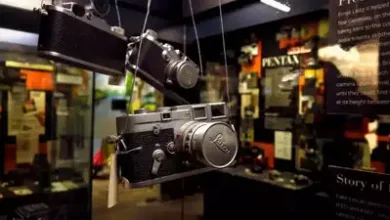AI Threat: Dubbing Artists Say “Don’t Steal Our Voices”
Voice actors are protesting the unchecked use of artificial intelligence (AI) to create and duplicate human voices because they believe it threatens their livelihoods. Mario Filio, a Mexican artist who has provided voiceovers for celebrities like Will Smith and Obi-Wan Kenobi from Star Wars and the party-loving lemur King Julien from the animated film “Madagascar,” said, “We’re fighting a very big monster.”
The United Voice Artists group was founded by more than 20 voice acting guilds, organizations, and unions from Europe, the United States, and Latin America. The coalition is running a campaign with the motto “Don’t steal our voices.”
It stands in for the anonymous voice actors and narrators who work in commercials, films, audiobooks, and video games who are concerned that robots or even artificial intelligence may replace or even clone their voices without their permission.
According to the organization, whose members include the US National Association of Voice Actors (NAVA) and Latin America’s Organization of United Voices, the unrestricted and uncontrolled use of artificial intelligence poses a risk that could result in the extinction of a creative and awe-inspiring artistic heritage.
In a statement last month, NAVA vice president Carin Gilfry remarked, “Our voices are our livelihood.”
“And if we don’t have control over how those voices are used, we can’t make a living,” she said.
Text-to-speech technology, which converts written words into artificial voice, already puts voice actors in a competitive position.
A new danger has now emerged thanks to artificial intelligence.
A voice sample may be compared to millions of others using machine learning, which identifies patterns that lead to the creation of clones.
According to Dessiree Hernandez, head of the Mexican Association of Commercial Announcers, “it’s fed by voices that we’ve been providing for years.”
“We’re talking about the right to use your voice without your consent,” she said.
‘Adapt or vanish’
Platforms provide human-sounding text-to-speech services for a fraction of the cost of hiring a professional.
One, revoicer.com, claims that their goal is to provide a speedier and less expensive substitute for human voiceovers rather than replace them.
Voice performers are concerned that businesses are utilizing their voices to bolster their archives while continuing to be recruited.
In the face of sophisticated piracy, the musicians are looking for ways to monitor their voices.
According to Colombian voice actor Daniel Soler de la Prada, they favor regulations that establish quotas for human voiceovers and prohibit the use of voice recordings made without their permission to create AI.
According to Filio, in the future, listeners would be able to hear a well-known actor’s voice in a variety of languages but with the intonation of a dubbing artist.
Voice actors “need to charge what’s fair,” he argued, despite the fact that doing so would result in employment and benefits for the general public.
Mexican voice actress Maclovia Gonzalez stated she wouldn’t sign a contract with an AI business unless it was clear how the material would be utilized.
She said, “I want to be a part of this change, but not at any cost.
Art Dubbing, a business that has received many demands from customers to utilize synthetic voices, is in a predicament: “Adapt or disappear,” said its Mexican creator, Anuar Lopez de la Pena.
For his side, Filio said that he ceased recording for numerous customers out of concern for his coworkers’ financial security.
He said that the robots have “no soul,” thus he is doubtful that AI will entirely replace voice actors.







